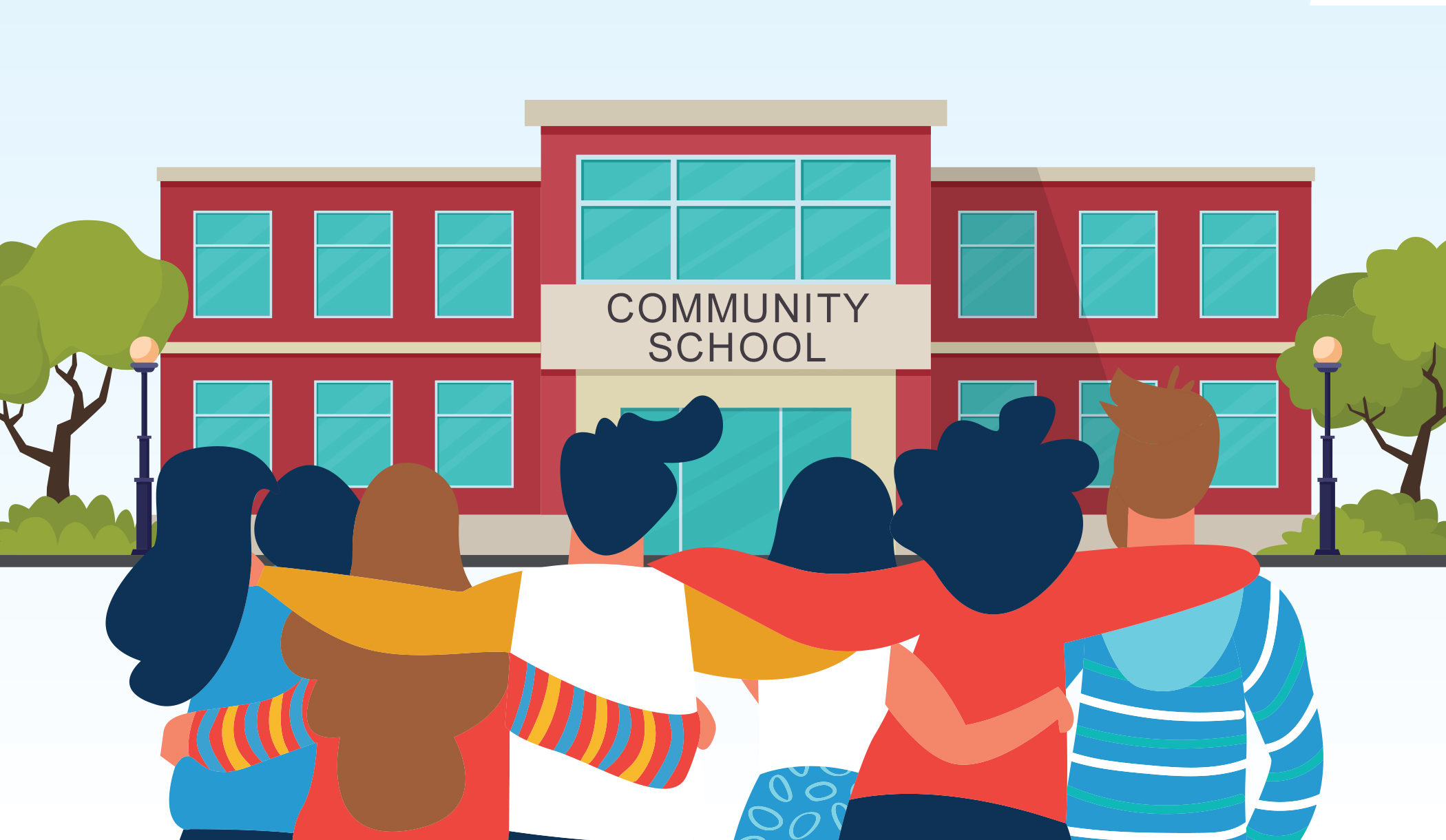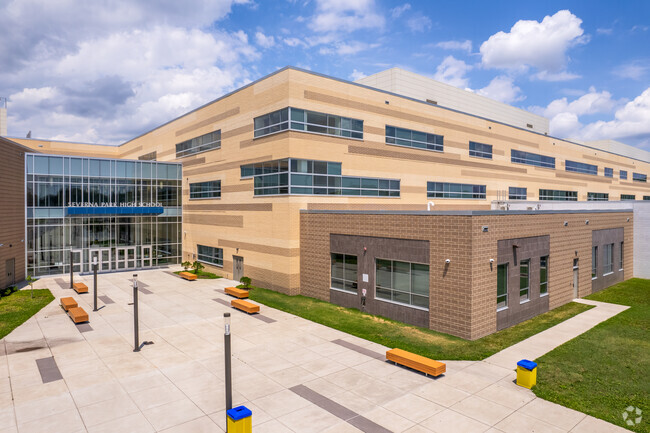Understanding the Importance of Institutions in Child Advancement and Neighborhood Growth
Schools act as critical organizations for child growth and community growth, supplying environments where academic accomplishments are matched by the farming of social skills and exposure to diverse perspectives. These academic setups not only promote important reasoning and effective interaction but also foster compassion via collective tasks. Colleges' engagement with local areas via service-learning campaigns strengthens the bond between family members and instructional establishments. This cooperative connection emphasizes the relevance of colleges in supporting energetic citizenship and lifelong understanding behaviors. Nevertheless, what are the certain systems by which these institutions achieve such profound impacts?
Academic Achievement
Academic success serves as a keystone of kid development, providing the structure upon which future learning and success are constructed. Institutions play a critical duty in cultivating this scholastic growth, offering organized atmospheres where youngsters can acquire essential expertise and cognitive skills. Standardized educational program guarantee that pupils gain effectiveness in core topics such as mathematics, scientific research, and language arts, which are important for both college and specialist chances.
In addition to passing on basic academic abilities, schools likewise grow important thinking, analytical capacities, and intellectual inquisitiveness. These cognitive proficiencies are vital for navigating complicated real-world circumstances and adapting to the ever-evolving demands of the contemporary work environment. Educators, as facilitators of learning, employ varied instructional methods to accommodate different understanding styles, therefore optimizing private trainee capacity.
In addition, academic success is closely linked to self-worth and motivation. Youngsters that experience scholastic achievements are more probable to establish a favorable self-concept and a lifelong passion for discovering. Colleges additionally provide various resources, such as libraries and innovation, which even more boost the educational experience and prepare students for a technologically sophisticated culture.
Social Ability Development
Beyond academic achievement, the function of colleges in social ability growth is indispensable. Schools work as a main location for youngsters to find out and exercise essential social skills such as participation, interaction, and problem resolution. In the organized atmosphere of a classroom, students engage with peers, instructors, and other college team, using various opportunities to create these vital abilities.
Efficient social ability growth in institutions is helped with through group tasks, joint jobs, and extracurricular programs. These communications assist trainees understand social standards, develop compassion, and promote a feeling of neighborhood. As an example, team projects teach students how to collaborate towards an usual objective, listen to various perspectives, and navigate disagreements constructively.

The farming of social abilities during college years lays a foundation for future personal and expert connections. Save Temecula Schools. As pupils grow, the ability to successfully interact and team up ends up being significantly essential, underscoring the institution's essential duty in holistic child development
Direct Exposure to Diversity
Exposure to diversity in colleges is fundamental to cultivating an inclusive attitude and expanding pupils' viewpoints. Schools act as this hyperlink a microcosm of the more comprehensive society, and experiencing diverse cultures, languages, and socioeconomic backgrounds within this setting outfits pupils with essential skills for browsing a significantly globalized globe. This direct exposure urges empathy, reduces bias, and advertises mutual respect among peers.
Diverse class additionally improve cognitive and social development. Research suggests that pupils that engage with peers from different backgrounds display much better problem-solving abilities and creativity. They learn to value various perspectives, which improves class conversations and fosters an extra dynamic learning experience. This understanding of diversity prepares pupils for future workplaces that worth multicultural capability.

Neighborhood Involvement
The benefits of diverse classrooms prolong beyond the institution wall surfaces, cultivating a strong feeling of community interaction among trainees. By connecting with peers from numerous social, socioeconomic, and ethnic histories, pupils obtain a broader perspective and a recognition for variety. This exposure urges them to end up being energetic residents that are ready to add positively to their neighborhoods.
Schools that emphasize community engagement frequently integrate service-learning projects, which allow students to discover this address real-world problems while using academic skills. These tasks not just improve students' understanding of their coursework but additionally infuse a feeling of obligation and empathy. Moreover, partnerships between colleges and neighborhood organizations offer students with possibilities to join neighborhood events, better solidifying their function as proactive community participants.
Additionally, adult and area involvement in institutions enhances the bond in between educational organizations and the communities they offer. Via these initiatives, schools play a critical role in supporting neighborhood engagement and fostering social growth.
Lifelong Discovering Behaviors
Developing long-lasting understanding behaviors is necessary for a child's continual development and flexibility in an ever-changing globe. Colleges play a critical function in instilling these habits by developing an environment that fosters curiosity, crucial thinking, and a love for understanding. Through extracurricular tasks and varied educational programs, educators urge pupils to discover different topics, analyze information critically, and apply their discovering to real-world circumstances.

Moreover, institutions give an organized environment where kids can create self-discipline and time management skills, both of which are crucial for constant discovering. By stressing the importance of setting goals, reviewing development, and adjusting techniques, schools prepare students to browse the complexities of grown-up life, guaranteeing they continue to be long-lasting students and contributors to society.
Final Thought
To conclude, colleges are important in fostering child development and neighborhood development by blog here supplying environments favorable to academic accomplishment, social skill development, and exposure to diversity. Through collaborative projects and communications, schools enhance vital thinking, empathy, and communication skills. Area involvement initiatives additionally enhance the bond between neighborhood areas and academic institutions. Ultimately, colleges grow long-lasting knowing behaviors, equipping people with the needed understanding and skills to add positively to culture.
In the structured setting of a classroom, pupils communicate with peers, educators, and various other institution staff, supplying various possibilities to develop these essential abilities.
In significance, direct exposure to diversity within institutions not only enriches specific students however also enhances the social textile of the community as a whole.
The benefits of varied class extend beyond the institution walls, promoting a strong sense of neighborhood involvement amongst pupils.Schools that highlight neighborhood involvement often incorporate service-learning tasks, which enable trainees to resolve real-world troubles while applying academic abilities. Collaborations between schools and local organizations give trainees with opportunities to participate in community events, even more solidifying their function as positive area participants.